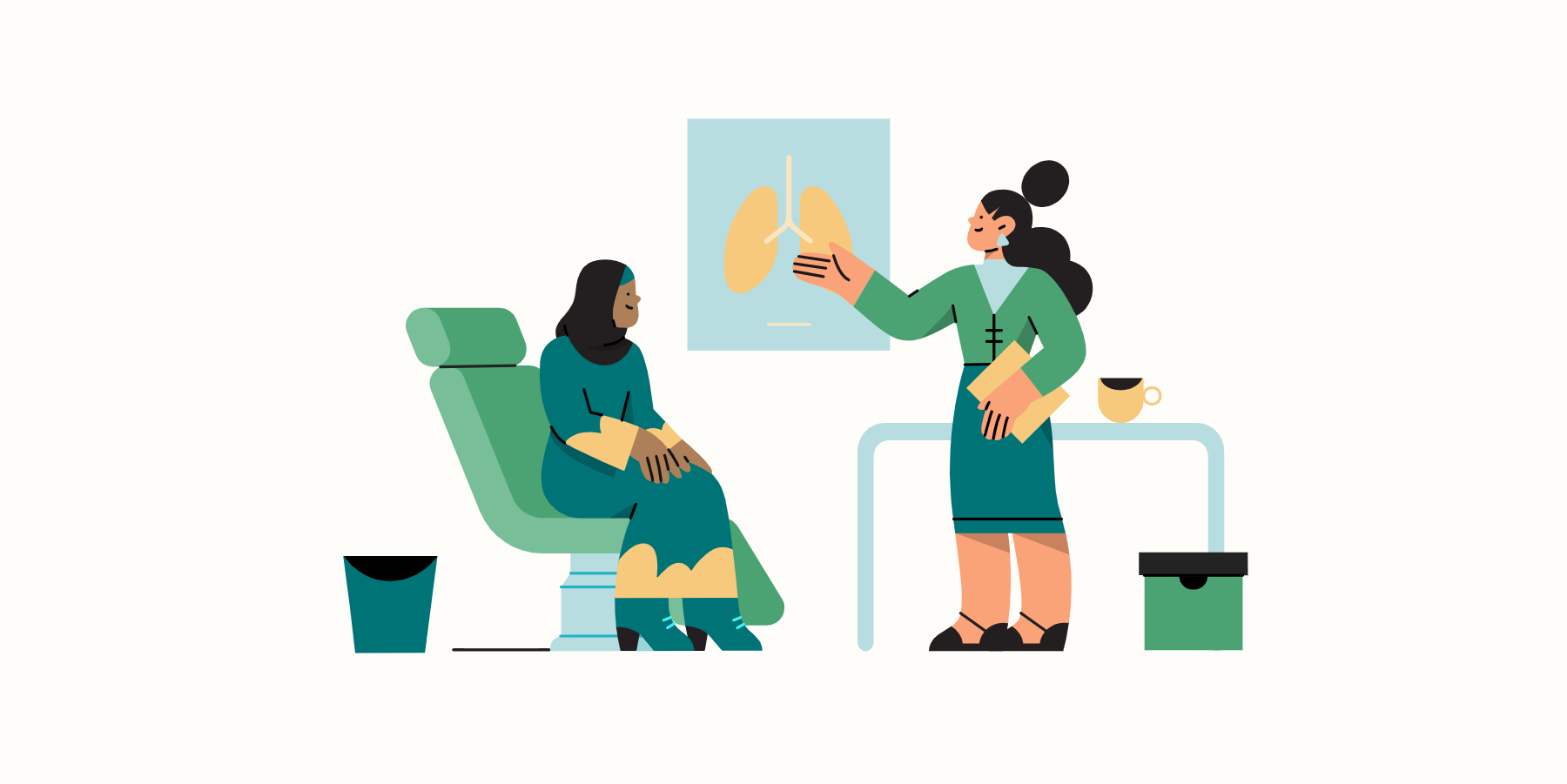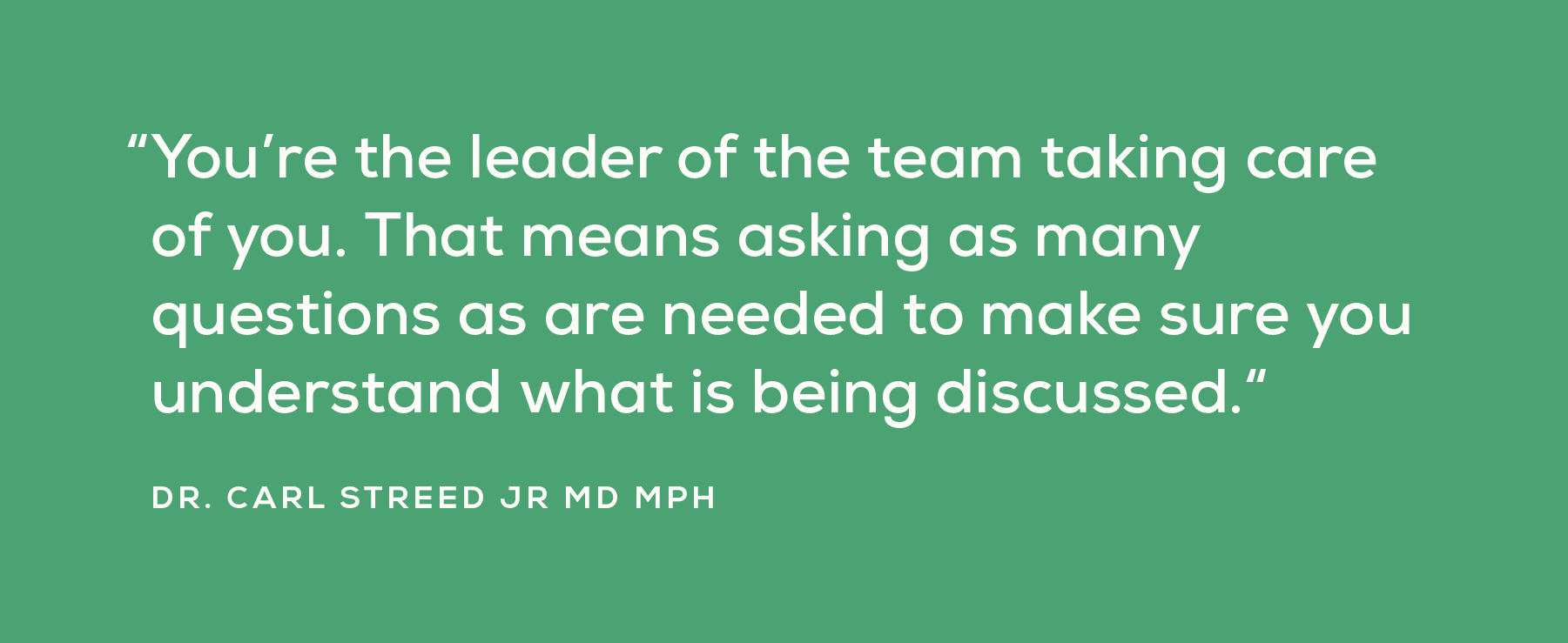
7 ways to best advocate for yourself at doctor’s appointments, according to an expert
Dr. Carl Streed Jr, MD, MPH, is an Assistant Professor of Medicine in the Boston University School of Medicine, who has chaired the American Medical Association Advisory Committee on LGBTQ Issues and served on the board of GLMA: Health Professionals Advancing LGBTQ Equality. In addition to being a primary care clinician, Dr. Streed is the Research Lead for the Center for Transgender Medicine and Surgery at Boston Medical Center and collaborates with researchers, clinicians, and staff to assess and address the health and well-being of transgender and gender diverse individuals.
Table of contents
- What is self-advocacy and why is it important?
- What is shared-decision making?
- Get prepared before the appointment
- Get there early
- Communicate your concerns
- Take notes
- Be honest
- Ask follow up questions
- What is your advice on navigating tricky situations?
- Related content
Speaking up and being your own health advocate can be scary at times, especially if you’ve had an experience where you didn’t feel heard in the past, or you’re dealing with new symptoms.
And while one great first step is to seek out healthcare providers you feel align with your needs, it’s equally important to be able to take an active role in your healthcare journey by honing your self-advocacy skills to get the care you deserve.
Luckily, the ability to advocate for yourself is a skill that becomes more comfortable the more you do it. So to learn more about how to best navigate your next healthcare appointment, we spoke with Dr. Carl Streed Jr, MD, MPH, who in addition to being a primary care clinician specializes in the advocacy of LGBTQ health at the national policy level.
Keep reading for Dr. Streed’s advice on self-advocacy, navigating hard conversations, and tips and tricks to get the most out of your next appointment.
What is self-advocacy and why is it important?
Clinicians can only address what patients discuss and what we screen for. Clinicians should continue to ask open-ended questions to ensure they find out what patients want to discuss. That said, patients should feel empowered to direct their care through self-advocacy. This means learning to effectively communicate, convey, negotiate, and assert your own interests, desires, needs, and rights during the clinical encounter.
What is shared-decision making and the role a patient can play in helping to contribute to that dynamic?
Too often do clinicians just tell patients what needs to happen or overwhelm them with information, that they [clinicians] aren’t able to find out what's most important to the patient. In shared-decision making, a healthcare provider and patient are having a conversation that involves discussing the issue at hand (e.g., a condition that warrants treatment), reviewing options for how to address the issue, and sharing the patient’s values and goals in handling the issue. For example, this may include sharing with the clinician that the most important value is to be able to run again. Knowing this can help tailor what interventions are needed for a particular issue.

Luckily, the skills of self-advocacy are something we all have the ability to improve upon. Here are some simple steps you can take towards honing your self-advocacy skills for your next healthcare appointment, according to Dr. Streed:
Get prepared before the appointment.
It’s easy to forget things during a clinic visit. Everything feels rushed. One way to ensure you get to talk about everything you want is to have a written list of each issue you want to address. This could be either on a piece of paper or your phone. Taking some time before the visit to write it all out will help you and your provider get to everything most important to you.
Get there early.
The clinic aims to run as smoothly and on-time as possible. A lot of that depends on patients showing up early for their appointments. If a healthcare provider can see a patient early, they will. This means there could potentially be more time for the patient to ensure everything is addressed.
Communicate your concerns.
As much as we wish they could, clinicians cannot read minds. Know that the healthcare provider’s job is to hear you and help you, and that means you can communicate any concern or issue to them. This also comes back to keeping a list of what’s important and sharing that with your provider if you’re not comfortable speaking up.
Take notes.
Taking notes will allow you to review what was discussed, ensure you aren’t forgetting any information or issues you talked about with the provider, and allow you to come back to them later when you have a follow up appointment.
Be honest.
The clinician is not able to address what they do not know. And they cannot make appropriate recommendations without honest information. If someone has forgotten to take their medications or is not able to pay for it, the clinician needs to know this before they mistakenly increase the medication.
Ask follow up questions.
You’re the leader of the team taking care of you. That means asking as many questions as are needed to make sure you understand what is being discussed.
What is your advice on navigating tricky situations, where a patient may feel they’re not being heard?
If you feel you’re not being heard by the healthcare provider, take a breath, and say, “I’m concerned you’re not hearing me,” and pause. Too often clinicians are on autopilot that sometimes they need to be told to stop, take a step back, and listen. Return to your list of concerns and explain the concern you’re worried isn’t being understood by the provider. If you feel they’re still not hearing you out, ask for a referral to someone who specializes in your concern. This is your health and you should be heard.
Related content
The complete checklist to prepare for your next doctor’s appointment
Women's health concerns are not being taken seriously. We want to change that